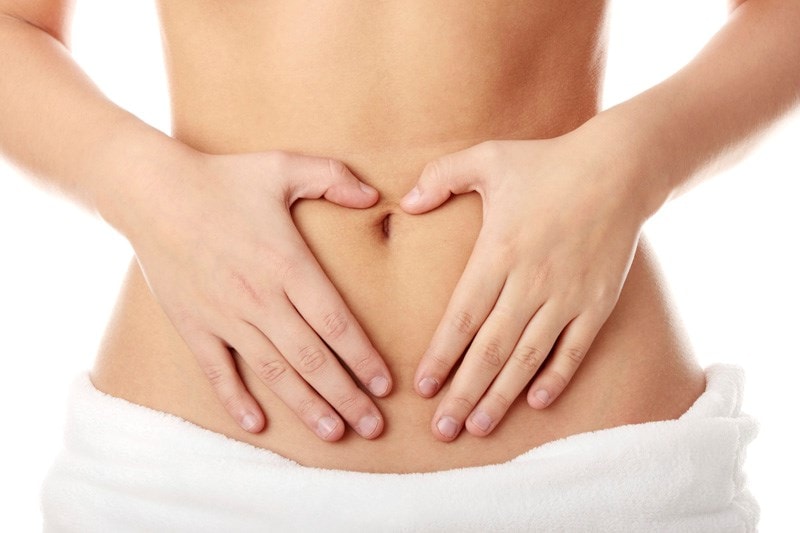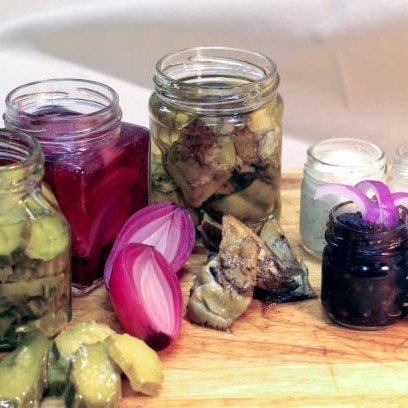Effects of NSAIDs & PPIs on Gut Health
Nonsteroidal anti-inflammatory drugs (NSAIDs) and proton-pump inhibitors (PPIs) are two of the most frequently prescribed groups of drugs worldwide. They are often prescribed in combination, as current gastroenterology guidelines state that PPIs help to reduce the likelihood of peptic ulcers and other adverse reactions in the upper GI tract, caused by NSAIDs.

However, more recent scientific evidence points to the fact that whilst PPIs may have a slightly protective effect in the stomach and upper GI tract (protecting the patient against NSAID induced stomach ulcers for example), the combination of drugs actually leads to more severe, adverse effects lower down the GI tract, in the small intestines. Endoscopy studies have revealed that adding PPIs to NSAID treatment results in a far greater likelihood of a patient developing mucosal lesions in the small intestines, compared to patients taking NSAIDs alone. One study 1 showed that as much as 80-100% of patients taking the drug combination develop mucosal lesions after as little as two weeks. In addition, levels of calprotectin, a marker denoting intestinal inflammation, are found to be much higher in patients taking the combination of NSADI and PPI drugs.
PPI drugs reduce the amount of hydrochloric acid secreted in the stomach and raise the pH of the stomach to above pH 4. Clinically, they are used to reduce the symptoms of hyperacidity (too much stomach acid) and acid-reflux, however by creating a more neutral pH they also enable more bacteria ingested with our food to survive, and create disturbances in the delicate GI microbiota. This can lead to an increased risk of infection, such as Clostridium difficile and a general over-growth of pathogenic species of bacteria. PPIs are also known to increase gastric emptying time, inhibit peristalsis, create changes in the mucus composition of the stomach and increase bacterial translocation into the bloodstream. All of these physiological changes create a more favourable environment for pathogenic bacteria to flourish, whilst limiting our colonies of ‘beneficial’ bacteria.
In 2011, Wallace et al 2 showed that ome****ole (a PPI drug) increased levels of pathogenic Enterobacteria in the intestines of rats, whilst decreasing the levels of beneficial Bifidobacteria in the large intestine. Additionally, the animals involved in the trial all developed clinically significant anaemia, as a result of damage to the intestinal epithelium and GI bleeding. Interestingly, the researchers found that repopulating the GI tract with Bifidobacteria enabled the intestinal mucosa to heal.
Scientists have been attempting to develop NSAIDs with a full safety profile throughout the GI tract for many years. To date, this goal remains unfulfilled and looks to remain so. However, research in to the potential role of probiotics is looking much more promising.

In 20113, researchers studied a group of patients all of whom had developed severe anaemia of ‘unknown origin’ whilst taking a course of low-dose aspirin, combined with Ome****ole (PPI). The study participants were divided into 2 groups, the ‘control group’ merely continued solely with their ongoing aspirin and ome****ole treatment, whereas the other group were given a probiotic in addition to their standard drug treatment. After 3 months, endoscopy results showed that the small intestinal mucosa had almost completely healed in the probiotic group, and blood tests revealed improvements in all blood cell count parameters, including iron levels (indicating an improvement in anemia). The control group saw no such improvements.
For patients taking these drugs, early research would seem to suggest that the addition of a good multi-strain probiotic would be advisable to lower the risk of intestinal mucosal injury, and to help prevent dysbiosis.
For further related reading, head over to the Probiotics Learning Lab: Study shows many medicines affect our gut bacteria (not just antibiotics)
References
- Watanabe, T., Sugimori, S., Kameda, N. et al. Small bowel injury by low-dose enteric-coated aspirin and treatment with misoprostol: a pilot study. Clin Gastroenterol Hepatol. 2008; 6: 1279–1282
- Wallace, J.L., Syer, S., Denou, E. et al. Proton pump inhibitors exacerbate NSAID-induced small intestinal injury by inducing dysbiosis. Gastroenterology. 2011; 141:1314–1322 (1322.e1-e5)
- Endo, H., Higurashi, T., Hosono, K. et al. Efficacy of Lactobacillus casei treatment on small bowel injury in chronic low-dose aspirin users: a pilot randomized controlled study. J Gastroenterol. 2011; 46: 894–905
Popular Articles
View all General Health articles-
General Health12 Feb 2024

